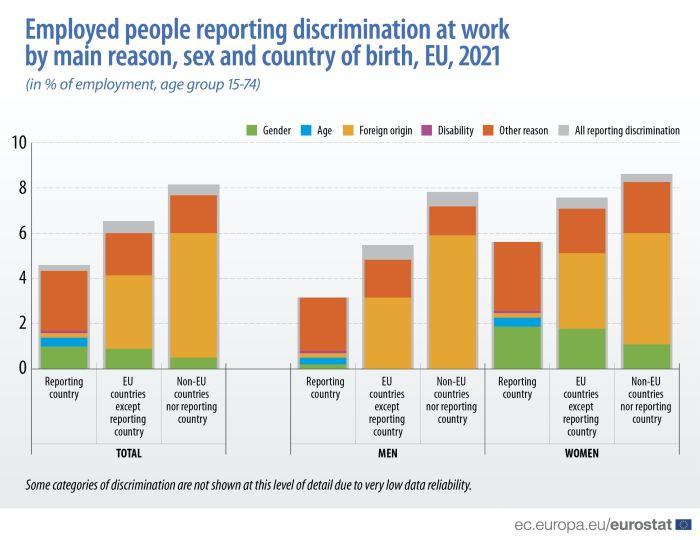In the bustling world of logistics, transport, and shipping, the journey of goods from point A to point B is often a seamless and efficient process. However, beneath the surface, there lurks a hidden challenge – personal discrimination. In this article, we delve into the complexities of personal discrimination within the logistics industry, exploring the impact it has on individuals and businesses alike. Join us as we navigate through the murky waters of inequality and injustice in the world of transport and shipping.
Recognizing and Addressing Personal Discrimination in the Logistics Industry
In the fast-paced world of logistics, personal discrimination can often go unrecognized and unaddressed. It is important for individuals in the industry to be aware of the different forms of discrimination that can occur and take steps to address them. Whether it is based on race, gender, age, or any other characteristic, discrimination can negatively impact an individual’s experience in the workplace and hinder their professional growth. By recognizing and addressing personal discrimination, we can create a more inclusive and equitable work environment for all.
One way to address personal discrimination in the logistics industry is through education and training. Providing employees with diversity and inclusion training can help raise awareness about unconscious biases and promote respect for all individuals. Additionally, implementing clear and fair policies for reporting discrimination incidents can encourage employees to speak up and seek support when needed. By fostering a culture of respect and equality, we can work towards eliminating personal discrimination in the logistics industry and creating a more harmonious and productive workplace for everyone.

Promoting Diversity and Inclusion Practices in Transport Companies
In the logistics, transport, and shipping industry, personal discrimination can unfortunately be prevalent. It is essential for companies in this sector to actively promote diversity and inclusion practices to create a more equitable and supportive work environment for all employees. By fostering a culture of respect and understanding, companies can attract a diverse range of talent and improve employee morale and productivity.
Implementing diversity and inclusion practices can also lead to better decision-making processes and problem-solving abilities within transport companies. When individuals from different backgrounds and perspectives come together, they can contribute innovative ideas and solutions that benefit the entire organization. Embracing diversity in the workplace not only benefits employees but also enhances the overall success and reputation of transport companies in the industry.

Improving Equitable Opportunities in Shipping Agencies
In order to improve equitable opportunities in shipping agencies, it is crucial to address personal discrimination within the industry. This can include discriminatory practices based on gender, race, age, or any other personal characteristic. By promoting a culture of inclusivity and diversity, shipping agencies can create a more fair and equal environment for all employees.
One way to combat personal discrimination in shipping agencies is to implement training programs that educate employees on the importance of diversity and inclusion. By providing employees with the tools and knowledge to identify and address discriminatory behavior, shipping agencies can work towards creating a more welcoming and supportive work environment for all. Additionally, fostering open communication and promoting transparency within the organization can help to ensure that all employees feel valued and respected.

Creating a Supportive and Respectful Work Environment in the Transportation Sector
In the fast-paced world of logistics, transport, and shipping, creating a supportive and respectful work environment is crucial for the success of the business and the well-being of employees. Personal discrimination can have a negative impact on morale, productivity, and retention rates. It is essential for employers in the transportation sector to take proactive measures to prevent discrimination and promote a culture of inclusivity and respect.
Employers can foster a supportive and respectful work environment by implementing the following strategies:
- Provide training: Offer regular training sessions on diversity, inclusion, and unconscious bias to educate employees about different perspectives and behaviors.
- Encourage open communication: Create a safe space for employees to voice their concerns and provide feedback without fear of retaliation.
- Promote diversity: Embrace diversity in hiring practices and create opportunities for employees from diverse backgrounds to advance within the organization.
The Conclusion
As we navigate the complex world of logistics, transport, and shipping, it is imperative that we address the issue of personal discrimination. By fostering a culture of inclusivity and respect, we can create a more equitable and productive industry for all. Let us work together to break down barriers and build a future where everyone is valued and treated with dignity. Only then can we truly achieve excellence in our shared endeavors. Let’s pave the way for a brighter, more enlightened future in the world of logistics.
